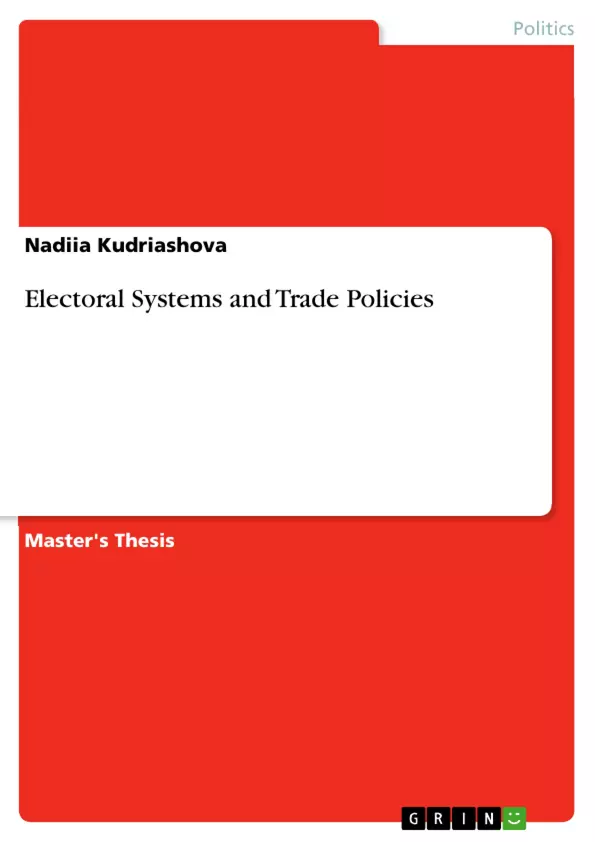In comparison to other types of social relations, one characteristic is peculiar to international relations: their core is political interaction. This is because in the absence of a legitimate center of power, international relations represent a continuous process of rivalry and harmonization of the interests of states. However, in the second half of the 20th century, the importance of the economic factor has immeasurably grown in the life of the international community, producing in many ways a new quality of international relations.
This is manifested in some events and trends. Firstly, after World War II, relatively actors new in comparison with states, such as global economic organizations, transnational corporations, and banks that had taken an important place in international relations, including in the sphere of power relations, entered the world arena.
Inhaltsverzeichnis (Table of Contents)
- Electoral Systems and Trade Policies
- The Economization of International Relations
- The Role of the Economic Factor in International Relations
- The Importance of the Economic Component in World Politics
- The State Foreign Trade Policy
- International Politics and Economics: A Synthesis
Zielsetzung und Themenschwerpunkte (Objectives and Key Themes)
This work examines the increasing importance of the economic factor in international relations, tracing its evolution from historical instances to its contemporary significance. The text explores the interplay between political and economic forces in shaping international relations, emphasizing the impact of globalization and economic interdependence.
- The evolving role of the economic factor in international relations
- The relationship between political and economic forces in shaping international relations
- The impact of globalization and economic interdependence on international relations
- The role of states, international organizations, and transnational actors in shaping global economic processes
- The historical evolution of the economization of international relations
Zusammenfassung der Kapitel (Chapter Summaries)
- Electoral Systems and Trade Policies: This chapter explores the core characteristic of international relations, which is the political interaction among states. It discusses the growing importance of the economic factor in the international system, highlighting the emergence of new actors like global economic organizations and transnational corporations, and the shifting priorities of state policy towards economic interests.
- The Economization of International Relations: This chapter delves into the history of the economization of international relations, drawing parallels between the current era and historical periods like the Pax Britannica, where economic factors influenced international policy. It highlights the differences between the current phase and the Pax Britannica, including the role of the United States as a leading power and the complex interplay between states, international organizations, and transnational capital.
- The Role of the Economic Factor in International Relations: This chapter delves into the theoretical underpinnings of the state foreign trade policy, examining its role in regulating economic relations with other states. It highlights the interconnectedness of political and economic dimensions in shaping international relations, emphasizing the need for a comprehensive approach that considers the domestic market and overall development strategies.
- The Importance of the Economic Component in World Politics: This chapter explores the challenges in synthesizing economics and politics in international studies, highlighting the difficulties in determining the subject of this field of research and the methods to be used. It discusses the influence of economic theory on the analysis of international relations and the need for a more integrated approach that acknowledges the interdependence of political and economic factors.
Schlüsselwörter (Keywords)
Key keywords include: international relations, economic factor, political interaction, globalization, economic interdependence, states, international organizations, transnational actors, foreign trade policy, economic theory, Pax Britannica, political economy, international studies.
Frequently Asked Questions
What is the "economization" of international relations?
It refers to the growing importance of economic factors and actors in world politics, often rivaling traditional political interactions.
How do electoral systems influence trade policies?
The work examines how domestic political structures and the need for voter support shape a state's foreign trade and economic strategies.
What new actors have emerged in world politics since WWII?
Global economic organizations, transnational corporations (TNCs), and international banks now play a major role alongside states.
What was the Pax Britannica in economic terms?
It was a historical period where British economic dominance provided a framework for global trade and international stability.
Why is economic interdependence important today?
Interdependence means that states are increasingly linked through trade and capital, making cooperation necessary for domestic prosperity.
- Quote paper
- Nadiia Kudriashova (Author), 2018, Electoral Systems and Trade Policies, Munich, GRIN Verlag, https://www.grin.com/document/496813



